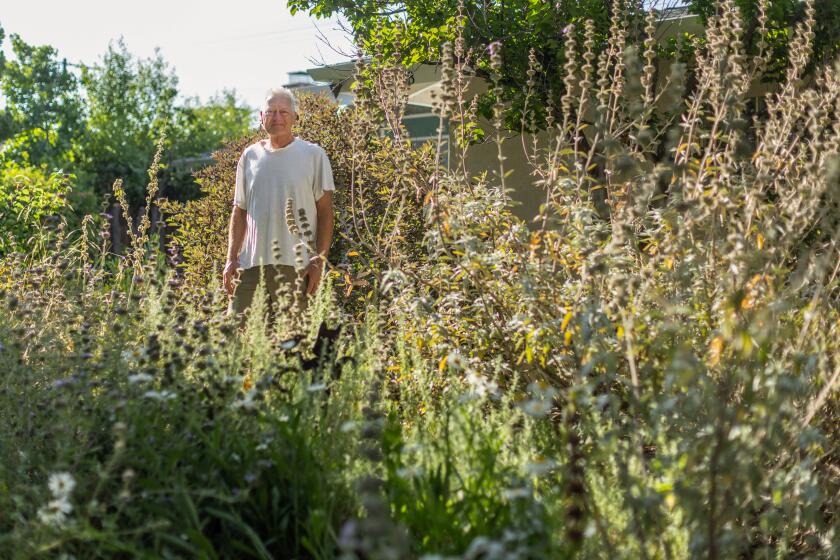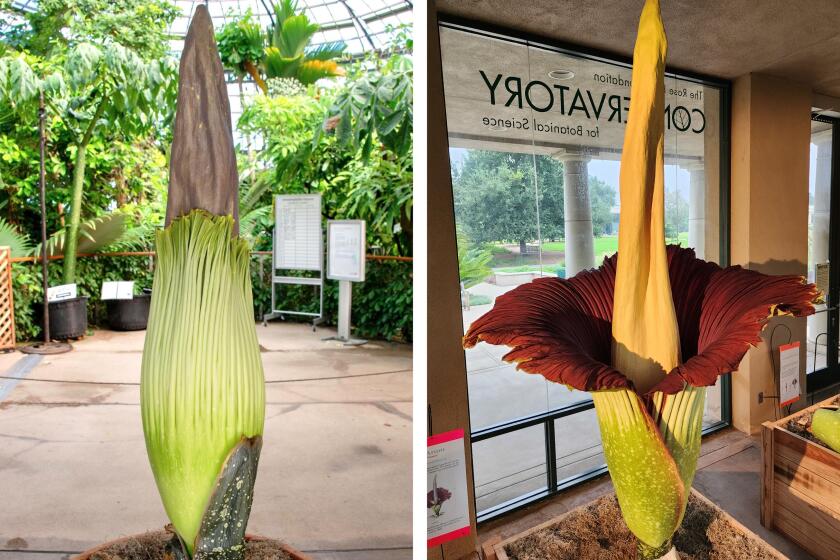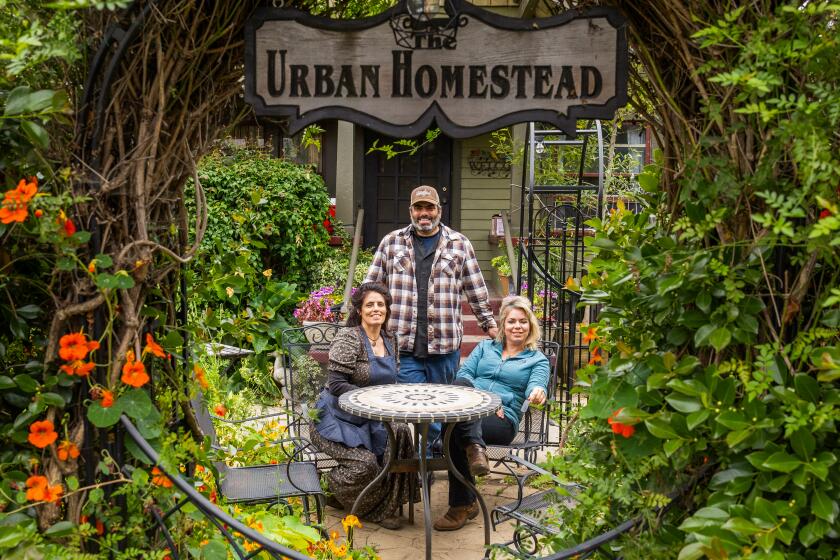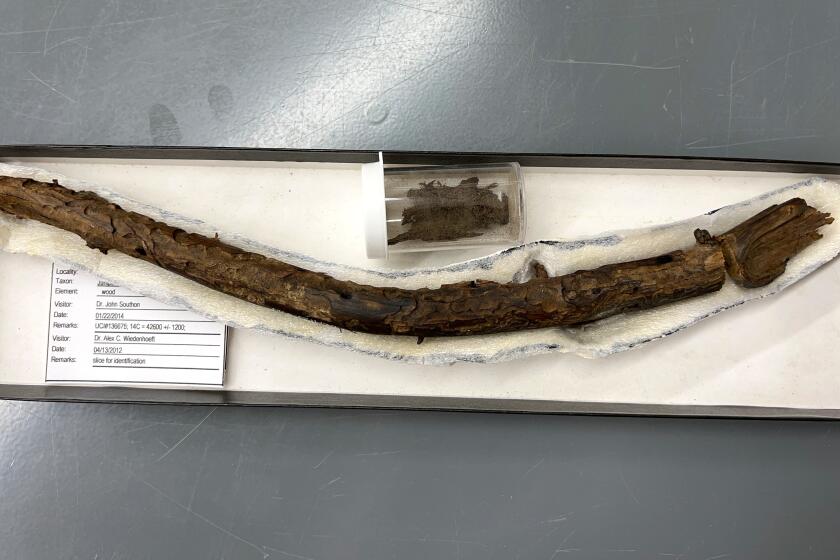GARDENING : Recycling Keeps the Plastic Problem From Cropping Up in the Back Yard
Does a white plastic label occasionally stare out from the dark, brown humus of your compost pile? The writing on the label is no longer legible, but it very well could have told the name and sowing date of a row of lettuce planted five years ago.
Such is the nature of plastic--it persists after everything else is gone. This longevity can be an asset, for what use would that label have been if it had rotted away before the end of the season? The longevity of plastics also is a shortcoming, when it comes to disposal at the end of the season.
Plastics have generally made gardening easier. Black plastic mulch is an easy way to smother weeds. Black plastic also warms the soil.
Without plastic, drip irrigation--an inexpensive and easy way to water--would be nonexistent or crude. Similarly, plastic seedling flats divided into cells make it possible to transplant seedlings without disturbing their roots.
And the list goes on: Plastic covers over growing plants extend the growing season in both directions; plastic leaf bags, even plastic beads to take the place of vermiculite, perlite or sand in improving the drainage of potting mixes.
What is to be done with all the spent plastic?
One obvious solution is to reuse as much as possible. If black plastic mulch is handled carefully, or left in place, it can be used for more than one season. The writing on plastic garden labels can be erased with sandpaper, then reused. Row covers that extend the season last longer if stored out of sunlight when a choice is available, as it is with mulches and drip irrigation systems.
Unfortunately, many plastics become brittle with age, and then they become useless.
Recycling may be a way to deal with plastic that has lived out its age. For example, that plastic garden label could go full cycle in the garden if molded together with other recycled materials to make flowerpots, compost bins and the like.
Reducing the use of plastic in the garden is an obvious way to reduce disposal problems.
* For gardeners who want to mulch but do not want to haul bulky organic materials such as straw and leaves, biodegradable paper mulch, which lasts one season, can be rolled out on the garden.
* For growing seedlings, a few homemade wooden flats are easily made and long-lasting. Most wooden flats do not have separate cells for individual plants, so transplants must be prepared for the shock of having their roots cut. But wooden flats do have the advantage of requiring less frequent watering than plastic cell-packs.
* Forget about incorporating plastic beads into potting mixes. These beads have no advantage over perlite, vermiculite and sand in providing aeration and drainage, and have the disadvantage of spreading yet more plastic into the environment.
* For labels, consider using large wooden, rather than plastic, ones. Large wooden labels will not get lost among plants, and they provide enough room on which to write all sorts of information: variety, sowing date, transplanting date, number of feet grown, even harvest date.
By the end of the season, the bottoms of such labels are already on their way to becoming humus. Toss the labels onto your compost pile, to complete the process, after recording the information from them onto paper, for your records.



